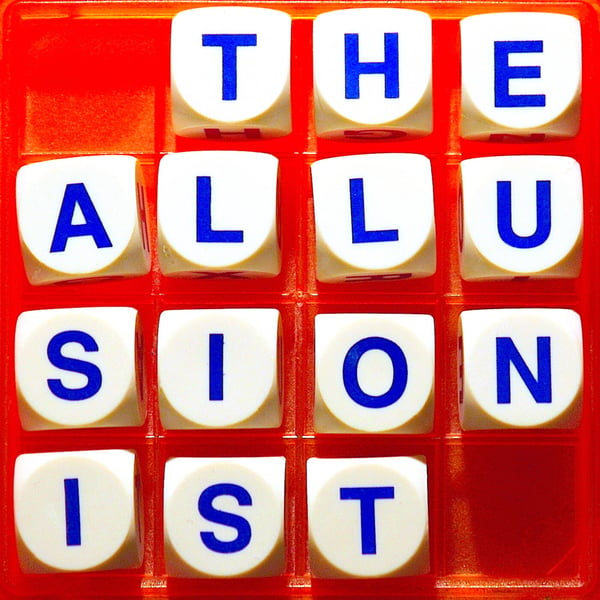151. The Bee's Knees
The Allusionist
Helen Zaltzman
4.7 • 3.8K Ratings
🗓️ 18 March 2022
⏱️ 30 minutes
🧾️ Download transcript
Summary
Bad hats, cat's pyjamas, banting, goops, creatures, and playing possum - what WERE people going on about during the Golden Age of detective fiction? Caroline Crampton of Shedunnit podcast and I get sleuthing into the slang of the mystery novels of the 1920s and 1930s.
Find out more information about the topics in this episode at theallusionist.org/beesknees, plus a transcript and the full dictionary entry for the randomly selected word. Versions of this episode were originally released by Caroline Crampton's Shedunnit podcast and the Shedunnit Book Club. Find both at shedunnitshow.com.
Sign up to be a patron at patreon.com/allusionist and not only are you supporting independent podcast, you get fortnightly patron-exclusive video livestreams and a Discord community full of language chat, craft pics and word game camaraderie.
The Allusionist's online home is theallusionist.org. Stay in touch at twitter.com/allusionistshow, facebook.com/allusionistshow and instagram.com/allusionistshow.
The music is by Martin Austwick. Hear Martin’s own songs via palebirdmusic.com.
Our ad partner is Multitude. To sponsor an episode of the show this year, contact them at multitude.productions/ads. This episode is sponsored by:
• Bombas, whose mission is to make the comfiest clothes ever, and match every item sold with an equal item donated. Go to bombas.com/allusionist to get 20% off your first purchase.
• BetterHelp, online therapy with licensed professional counsellors. Allusionist listeners get 10% off your first month at betterhelp.com/allusionist.
• Squarespace, your one-stop shop for building and running a sleek website. Go to squarespace.com/allusionist for a free 2-week trial, and get 10 percent off your first purchase of a website or domain with the code allusionist.
Support the show: http://patreon.com/allusionist
See omnystudio.com/listener for privacy information.
Transcript
Click on a timestamp to play from that location
| 0:00.0 | This is the illusionist, in which I, Helen Zoltzman, accused language in the billiard room |
| 0:09.2 | with the lead pipe. Today's episode is solving some mysteries, mysteries of vocabulary, |
| 0:15.6 | posed by listeners of the She-Dunic podcast. I appeared on an episode a few weeks ago with |
| 0:20.3 | host Caroline Crampton, doing some investigative work into words and phrases that people had |
| 0:25.1 | been perplexed by in golden age detective fiction. If you haven't read the books concerned, |
| 0:30.2 | that is no problem. The terms are no more comprehensible within context than out of it. |
| 0:35.6 | Content note, anal discharge. On with She-Dunic's mysterious glossary with Caroline Crampton. |
| 0:42.6 | The first word of phrase that we're going to try and define for you today is this pair of |
| 0:56.8 | ACMA and PIPMA, which my understanding is that it's something to do with time. It comes up, |
| 1:04.4 | I think Peter Wimsey says it a fair amount, as a kind of stylised way of referring to a rendezvous |
| 1:11.2 | of the time for. But it also, I think, in Agatha Christie's a murder is announced, where there are |
| 1:16.6 | actually characters with names that reference these particular phrases. So, Helen, is there something |
| 1:24.5 | that you'd come across before? I didn't retain it if I had, but once I read what it meant, I thought, |
| 1:30.1 | oh, that is obvious. ACMA is AM as in morning and PIPMA is PM as in afternoon. And it was early 20th |
| 1:38.4 | century Signolas names for the letters AP and M. So, sort of Signolas as in military? |
| 1:47.6 | Yes, British Army. They didn't yet have the NATO spelling alphabet that we have now, |
| 1:52.6 | you know, the alphabet, but it was like a precursor to that from the late 19th century. And I think |
| 2:00.0 | in 1898, the war office issued it, but they didn't have words for every letter yet. They only had |
| 2:07.3 | ones for letters that were easily confused. So, AC, beer or bar for B. But then nothing until |
| 2:13.8 | M for M and then PIP for P, S's, Toc and Vick. And then they developed that during the First World War. |
| 2:22.0 | And after that, they had words for every letter, but still not the ones we use today. |
| 2:30.8 | I suppose now you wouldn't have M for M because people will be confused because they'd be expecting |
... |
Please login to see the full transcript.
Disclaimer: The podcast and artwork embedded on this page are from Helen Zaltzman, and are the property of its owner and not affiliated with or endorsed by Tapesearch.
Generated transcripts are the property of Helen Zaltzman and are distributed freely under the Fair Use doctrine. Transcripts generated by Tapesearch are not guaranteed to be accurate.
Copyright © Tapesearch 2025.

